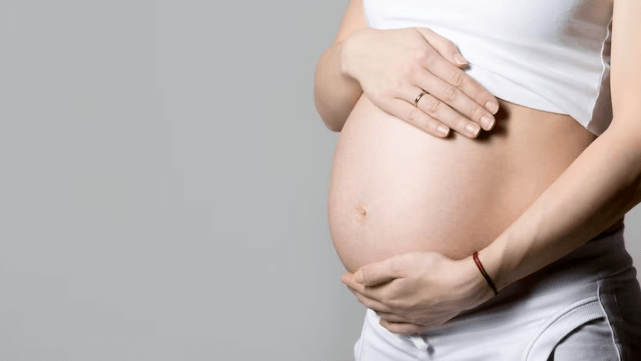Some symptoms make you think you’re just stressed and out of sorts. But when tested together, they may indicate pregnancy.
We all know the classic signs of pregnancy: a missed period, more sensitive breasts and constant fatigue. But apart from them, pregnant women also experience a whole set of other symptoms – here are 10 such unexpected signs:
- Early discharge in pregnancy
Many women experience vaginal discharge that is not associated with pregnancy. But most pregnant women produce sticky, white or pale yellow mucus early in the first trimester and throughout pregnancy.
Increased hormones and vaginal blood flow cause this discharge. It increases during pregnancy to prevent infections as the cervix and vaginal walls soften. See your doctor if the discharge has an odor, burns or itches, turns greenish-yellow, becomes thick or watery. These may be signs of infection.

- The body increases its temperature
When you wake up the morning after ovulation, your body temperature is slightly elevated. It stays that way until the next cycle. But if this temperature, known as basal body temperature, stays higher for more than two weeks, you may be pregnant.
- Headaches, cramps and the constant urge to pee
Hormonal changes and changes in blood volume during pregnancy can lead to headaches.
Some women also experience menstrual cramps on both sides of the lower abdomen. And most pregnant women go to the toilet more often. This is because the growing uterus puts pressure on your bladder.
- Sensation that the room is spinning
It is not unusual for pregnant women to feel dizzy during the first trimester. Pregnancy causes blood pressure to drop and blood vessels to dilate.
But pay close attention to your symptoms – severe dizziness combined with vaginal bleeding and severe abdominal pain can be a sign of an ectopic pregnancy. In an ectopic pregnancy, the fertilized egg is implanted outside the uterus. Be sure to see a doctor right away to avoid life-threatening complications.
- Difficulty in the toilet
You may feel bloated, like you need to pass gas or go to the bathroom for longer. But just not being able to go. The reason is hormonal changes during pregnancy, which can lead to constipation, as well as prenatal vitamins.
Digestive system slows down during pregnancy. This gives the nutrients enough extra time to be absorbed into the bloodstream and reach the baby.
If you can’t go to the toilet, add more fiber to your diet, drink plenty of fluids and exercise regularly. If necessary, you can also consult your doctor about adding a pregnancy-safe stool softener.
- You may experience a false period
About 25 to 40 percent of pregnant women bleed lightly or notice spotting early in their pregnancy. Light bleeding can occur when the fertilized egg attaches to the lining of the uterus. This phenomenon is known as implantation bleeding. It often occurs about two weeks after conception.
Bleeding can also be caused by irritation of the cervix, an ectopic pregnancy or a risk of miscarriage. Seek immediate medical attention if your light bleeding becomes heavier or is accompanied by severe cramping, back pain, or stabbing pains.
- Cold-like symptoms
Pregnancy lowers your immunity. This means you are more susceptible to coughs, colds and flu. It is not unusual for women to experience cold or flu-like symptoms early in pregnancy.
Talk to your doctor about pregnancy-safe treatment options. Pregnant women are more vulnerable to severe cases of the flu. This can lead to serious health problems for your baby.
- Your chest is on fire
Hormones change everything during pregnancy. This includes the valve between the stomach and esophagus. This area relaxes during pregnancy, which can cause stomach acid to leak into the esophagus, causing heartburn.
Fight back by eating smaller and more frequent meals. Also cut out fried food. Try to avoid carbonated drinks, citrus fruits, juices and spicy foods.
- Mood swings
When you get pregnant, there are sudden changes in your hormones. It can throw your emotions out of whack. You will feel unusually emotional and prone to crying. Your libido goes from “hot” to “cold” and vice versa. You may also experience mood swings – this is quite common in early pregnancy.
- Metallic taste in the mouth
Increases in estrogen and progesterone during pregnancy can cause taste changes in many pregnant women.

